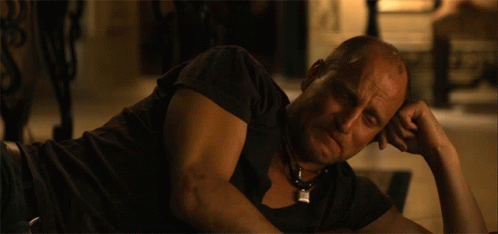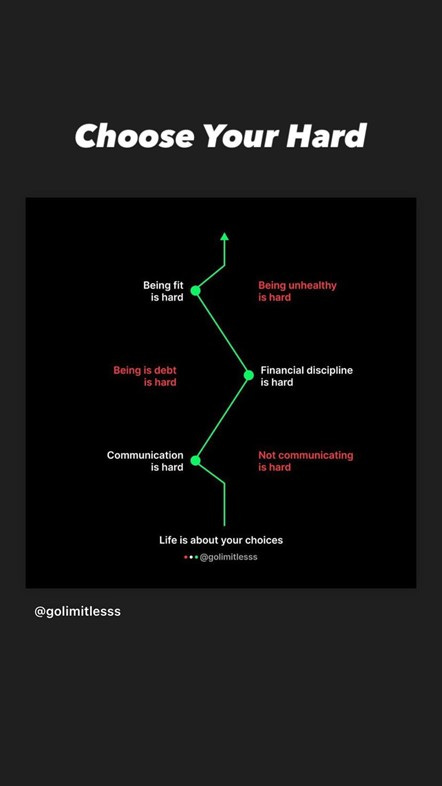What Is Money?
Money Won't Make You Happy… But Everybody Wants to Find Out For Themselves. - Milton Berle
Malik Djinadou
Money DOES Buy Happiness.
For the longest time, I was convinced that money could buy happiness. As a kid, I was happy whenever my parents gave me money for my birthday or for the latest Pokemon game for my DS. But as I grew older, I realized life is an intricate blend of emotions. Happiness is merely one of them and, often, a byproduct of various life experiences. Moreover, it isn't money that triggers these emotions; they are part of our human existence and experience, and this journey is often independent of our financial status.
Happiness is just one small part of life, and it's not something you can chase or buy. Happiness cannot exist without sadness. You need a sad reference point to be happy. Besides, chasing happiness can be dangerous because it often leads to addiction. Whether it's drugs, food, or sex, the pursuit of happiness can be a slippery slope. We can be on the top of the world in one moment and the bottom of the barrel in another.
Naval Ravikant, a notable entrepreneur and thinker, once said, "Money buys you freedom in the material world. It's not going to make you happy, it's not going to solve your health problems, it's not going to make your family great, it's not going to make you fit, it's not going to make you calm. But it will solve a lot of external problems. It's a reasonable step to go ahead and make money."
So what is money?
Money is merely a tool, a means to an end. Consider this: what good is all the money in the world if you were told that your time on Earth is limited to just 60 days? What's the worth of all that wealth if you're plagued by poor health? And what if you don't know what to do with all that money? What's the value of all that wealth if you are alone? In reality, what truly matters are time, health, knowledge, and good relationships. These are the things that truly make one wealthy.

Interestingly, people's relationship with money often skews towards immediate gratification. For example, Americans spend more money on lottery tickets than on movies, books, video games, and sporting events combined. Instead of investing in experiences, knowledge, or long-term financial stability, we chase the dream of immediate financial success, often at the expense of other aspects of wealth like health, relationships, and time.
But money is important…
While it may sound cliché, it bears repeating: money isn't everything. It serves as a means to achieve various ends, such as happiness, comfort, and stability. But much like a brick, money is inert. It's not inherently good or bad, fulfilling or unsatisfying. Its value lies in how it is used. You can have a pile of bricks, but if you don't plan to use them or have the knowledge to do so, they will not form a house. They'll just be a pile of bricks. The same goes for money. You can have a lot of it, but if you don't know how to use it wisely or spend it purposefully, it won't make your life any more fulfilling. Remember, we want more money to have a better life, not just to have more money.
Health is Wealth
Imagine you have something worth 10,000 units today. If you add 10% of its value to it every year, it will be worth 11,000 units next year, 12,100 coins the year after, and so on. In 30 years, you would have 174,494 units! This is how compound interest works: you add a fraction of what you have to what you have, and it becomes more over time. However, I am not talking about money. We should also keep in mind that compounding works both ways - gaining just 3 pounds each year can add up over a decade. As Confucius once said, "A healthy man desires a thousand things, but a sick man desires only one." Ultimately, no amount of money can replace good health. Get the bag, but don't neglect your wellbeing in the process.
Time
What indeed is money without time? It's an interesting paradox. On the one hand, we spend the best years of our lives chasing wealth, and on the other, no amount of money can buy back the time spent. The average age of a billionaire is 67. The average of American millionaires: 57. The wealthiest people in the world are old (and wise). Wealth is a product of time: the older you are, the more time you have to earn, save, and invest. So use your time wisely.
"Time is more valuable than money. You can get more money, but you cannot get more time." - Jim Rohn.
Relationships
What is money without relationships? Many people quickly quip that they'll wipe their tears with $100 bills. But do they really know what it means to be alone? Loneliness (26% higher likelihood of early death) is deadlier than covid (< 1% mortality rate). Although money can provide comfort and luxury, it cannot buy genuine connections. The true worth lies in human interactions, shared laughter, mutual support, and shared dreams and hopes. These things cannot be measured in monetary terms. A hug from a loved one, shared laughter, and a shoulder to lean on during tough times are priceless experiences that money cannot buy.
So now what?
Money is important. Having none is hard, but making a lot is also hard. Choose your hard. You don't need millions of dollars to manage your time more efficiently, have good relationships, or have great health. It certainly helps but remember that money is a tool. And its greatest utility comes when it is exchanged for other forms of wealth:
Use money to get some time back: outsource tasks like cooking (which takes one hour of your day)
Use your money to visit friends and family. When you're 67, you will cherish those moments
Increase your knowledge to increase your wealth: "Once you start Learning, the L disappears."
This substack is primarily about personal finance and financial independence in Africa. Achieving financial independence requires more than just money. It's about finding a balance between your financial goals and your personal values. So, instead of asking yourself if money can buy happiness, ask yourself what kind of life you want to live and what you're willing to do to get there. That's the key to true financial independence.
In closing, I invite you to ponder this: If money is a means to an end, what is that end for you? How will you leverage your financial resources to enhance your overall well-being and create a fulfilling life?
P.s. I still like getting money on my birthday. 😁





